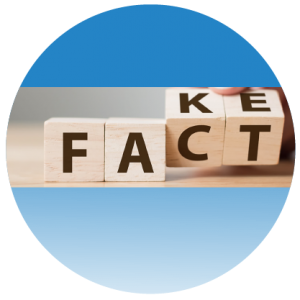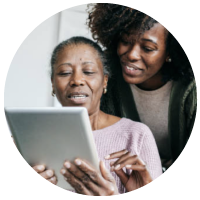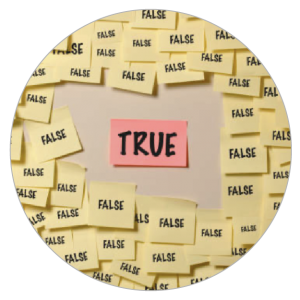Digital Literacy and Inclusion for Older Adults
Research and Articles on Bridging the Digital Divide

Teaching Older Americans How to Identify Fake News Online
“Millions of older Americans are reading their news online, mostly on Facebook, and then forwarding it to their friends and family. A recent study out of Princeton and NYU found that, in the lead-up to the 2016 election, adults over 65 were seven times more likely than those under 29 to post articles from fake news domains. These results echo a study published in early 2018 concluding that, in the weeks leading up to the presidential election, Americans over 60 were the most likely of any age group to visit fake news sites.
As a member of the over-60 crowd myself, I believe we must teach older people to be smarter online, and soon. The studies can’t tell us whether someone read a particular piece of fake news and then voted based on that story. But in a recent YouGov poll, 44 percent of Americans over 65 admitted to falling for fake news. And the one thing we know for sure is that this growing demographic consistently has the highest voter turnout of any age group. Read more
 Older Adults and Technology: Moving Beyond the Stereotypes
Older Adults and Technology: Moving Beyond the Stereotypes
age-related conclusion from the Princeton/NYU study was the “most robust, . . . even when holding other characteristics—including education, ideology, and partisanship—constant.”
So what’s going on with older people? Why are they falling for, or at least engaging with, misinformation online? And can they be taught to be more discerning consumers of online news? Read more
 Census 2020 and Older Adults — Help Spread the Word!
Census 2020 and Older Adults — Help Spread the Word!
Census 2020 is underway and for the first time ever, the Census is online. That’s good news for technology users but not for people without the computer access or digital literacy skills to go online without help. COVID-19 has derailed plans to help older adults and others by providing computer access and assistance at libraries, community centers, grocery stores and other gathering spots. You can help make sure that everyone living in the United States gets counted by filling out the Census yourself and by reaching out to older adults who may need help understanding the options for responding. Read more
 Combatting COVID-19 Misinformation
Combatting COVID-19 Misinformation
Misinformation about COVID-19 runs the gamut from false lists of symptoms to outrageous claims of miracle cures. Dr. Dr Tedros Adhanom Ghebreyesus, director of the World Health Organization, warns that “we’re not just fighting an epidemic; we’re fighting an infodemic. Fake news spreads faster and more easily than this virus, and is just as dangerous.”
It’s especially tough to figure out what’s true and what’s not given the amount of “real” news about the virus coming out every day. Here are some places you can go to get the facts and debunk the rumors. Read more
 The Pandemic Has Accelerated the Need to Close the Digital Divide for Older Adults
The Pandemic Has Accelerated the Need to Close the Digital Divide for Older Adults
The Covid-19 pandemic has thrown into stark relief two already disturbing trends from the last couple of decades. First, as the population ages, many older adults find themselves socially isolated, often with life-threatening consequences. Second, older adults have lagged behind the rest of the population in having the means and ability to access the Internet. The convergence of these two issues, each bad enough pre-pandemic, has created a situation where many older adults who comply with the shelter-in-place orders may find themselves completely shut off from the rest of the world.
Bridging the digital divide is no longer a luxury. Read more
In the News
[rpwe limit=”20″ cat=”971″ thumb=”true”]
